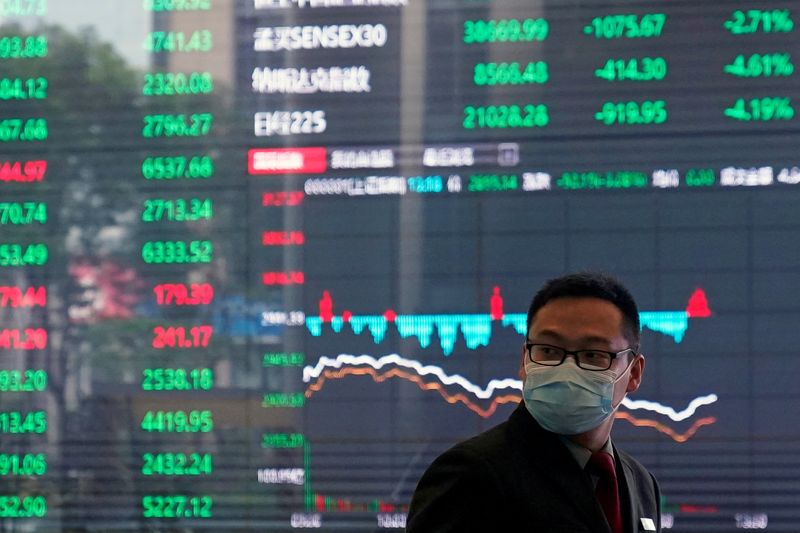US stock futures inch lower after Wall St marks fresh records on tech gains
Investing.com-- Most Asian stocks moved in a flat-to-low range on Monday as sentiment remained on edge before key economic readings this week, with Japan’s Nikkei 225 retreating from record highs.
Regional markets took a middling lead-in from Wall Street, as U.S. stock indexes closed a shade lower on Friday. US stock futures also tread water in Asian trade, with a barrage of Federal Reserve speakers and inflation readings on tap later this week.
Japan’s Nikkei falls from record highs
Japan’s Nikkei 225 index was the worst performer in Asia, falling 0.7% as investors locked-in recent record highs. The broader TOPIX index also fell 0.7%.
The Nikkei surged to new peaks last week despite the Bank of Japan’s first interest rate hike in 17 years. But the prospect of more tightening in Japanese monetary policy weighed on the index in recent sessions, especially as data also showed an uptick in inflation.
Inflation data on Japan’s capital is due later this week, and is likely to factor into the outlook for the BOJ.
Chinese stocks flat amid US fears, positive government signals
China’s Shanghai Shenzhen CSI 300 and Shanghai Composite indexes fell 0.1% each on Monday, and were nursing steep losses from the prior session amid increased concerns that the U.S. will impose more export restrictions on the country- particularly in the technology sector.
This notion was exacerbated by reports showing Beijing instructed government organizations to stop using chips from Intel Corporation (NASDAQ:INTC) and Advanced Micro Devices Inc (NASDAQ:AMD), and that Microsoft's (NASDAQ:MSFT) Windows operating system was also to be sidelined.
Chinese stocks tumbled on Friday after U.S. officials suggested some Chinese chipmakers flouted U.S. trade laws in 2023- a notion that could potentially draw stricter U.S. restrictions on Chinese tech companies.
Most major Chinese tech stocks saw extended losses on Monday, although gains in other sectors helped offset this decline. Hong Kong’s Hang Seng index rose 0.3%.
Food delivery app Meituan (HK:3690) was among the top gainers on the Hang Seng, up nearly 8% after its quarterly earnings beat expectations.
Chinese officials also offered up positive comments on their plans for the economy and industry, although they gave no clear signals on any more planned stimulus measures.
Most other Asian markets were muted. South Korea’s KOSPI fell 0.1% with focus on industrial production and retail sales data due later this week.
Malaysian stocks led losses in Southeast Asia with a 0.5% decline.
Australia’s ASX 200 was an outlier, rising 0.6% on strength in heavyweight mining and bank stocks. Key Australian inflation data is also on tap later this week.
Indian markets were closed for a holiday.
